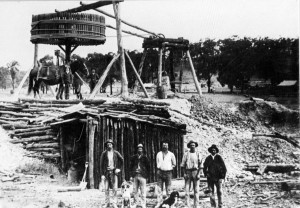 It’s not hard to guess what stance Gustavus students, or any liberal-arts college students for that matter, would take when considering an environmental issue such as mining.
It’s not hard to guess what stance Gustavus students, or any liberal-arts college students for that matter, would take when considering an environmental issue such as mining.
Mining can pollute water and air and significantly alter a landscape. It is a common belief that industries are only focused on making money, and care little about the future of the environment.
This may or may not be true for any given industry, but what is true for most companies or corporations, is their pride in supporting local jobs and employing people in surrounding areas. Industries, even the ones doing the most harm to the environment, are providing jobs for those who might not be able to make a living if they didn’t have that job working in the factory, mill, or plant.
Placing a value on an environment and then placing values on the individual and their job that potentially degrades that environment, seems like a difficult, if not impossible task. But values are being placed on both, and it’s surprising to see how the values can be compared.
The NorthMet Project, a proposed mine that would extract some of the world’s richest deposits of copper and nickel in Northern Minnesota, is facing opposition from environmentalists. They fear the mining project led by Poly Met Mining Inc. will pollute water and air from carbon emissions from the burning of coal to power the operation and destroy the landscape.
The fear is logical. With a project of this size, it is unlikely that all negative consequences can be avoided, regardless of precautions taken to prevent them.
But is the fear of pollution and an altered landscape enough to deny individuals valuable jobs? Is it enough to disregard those jobs that would provide an income to workers who could then feed, clothe, and support their family with medicine and schooling?
If the citizens of Hoyt Lakes, Minnesota feel that it is in their best interest for a mine to be opened, even with the immediate risks of environmental pollution, then who are the politicians, lobbyists, and members of NGO’s living in and around the Twin Cities to deny them that judgment? Are citizens of the Iron Range advocating for farmers in Central and Southern Minnesota to stop using fertilizers and pesticides, which can reduce yields and incomes?

But the entire state needs food and fuel. Farming is an essential way of life, just like metals are needed in our everyday life. If there is intensive agriculture, even with the knowledge that it is polluting land, air, and water, that results in an oxygen-deprived dead-zone in the Gulf of Mexico, it seems that the mining industry should have that same opportunity.
Environmentalists shouldn’t discriminate between industries based on their perception of environmental risk, especially when we, as Minnesotans and Americans, are benefiting from both activities. Can we really say yes to one group and then say no to another when the basic circumstances are the same?
After driving through St. Louis County, where the proposed mine will be located, it became real to me how the people in the area have been affected.
I do not want the area to be polluted and neither do the citizens who are living there. There isn’t only an environmental issue, but a social one, as well. When it comes down to it, the land, air, and water are competing against the people. By choosing to support the environment and oppose the mine, it is at the cost of the opportunities and livelihoods of the people.
I am an environmentalist at heart, but I have a hard time putting the environment before people without question.
This isn’t a one dimensional issue. I hope when the time comes to make decisions on these environmental issues, the people who will be affected most are considered, not just the environment at stake.